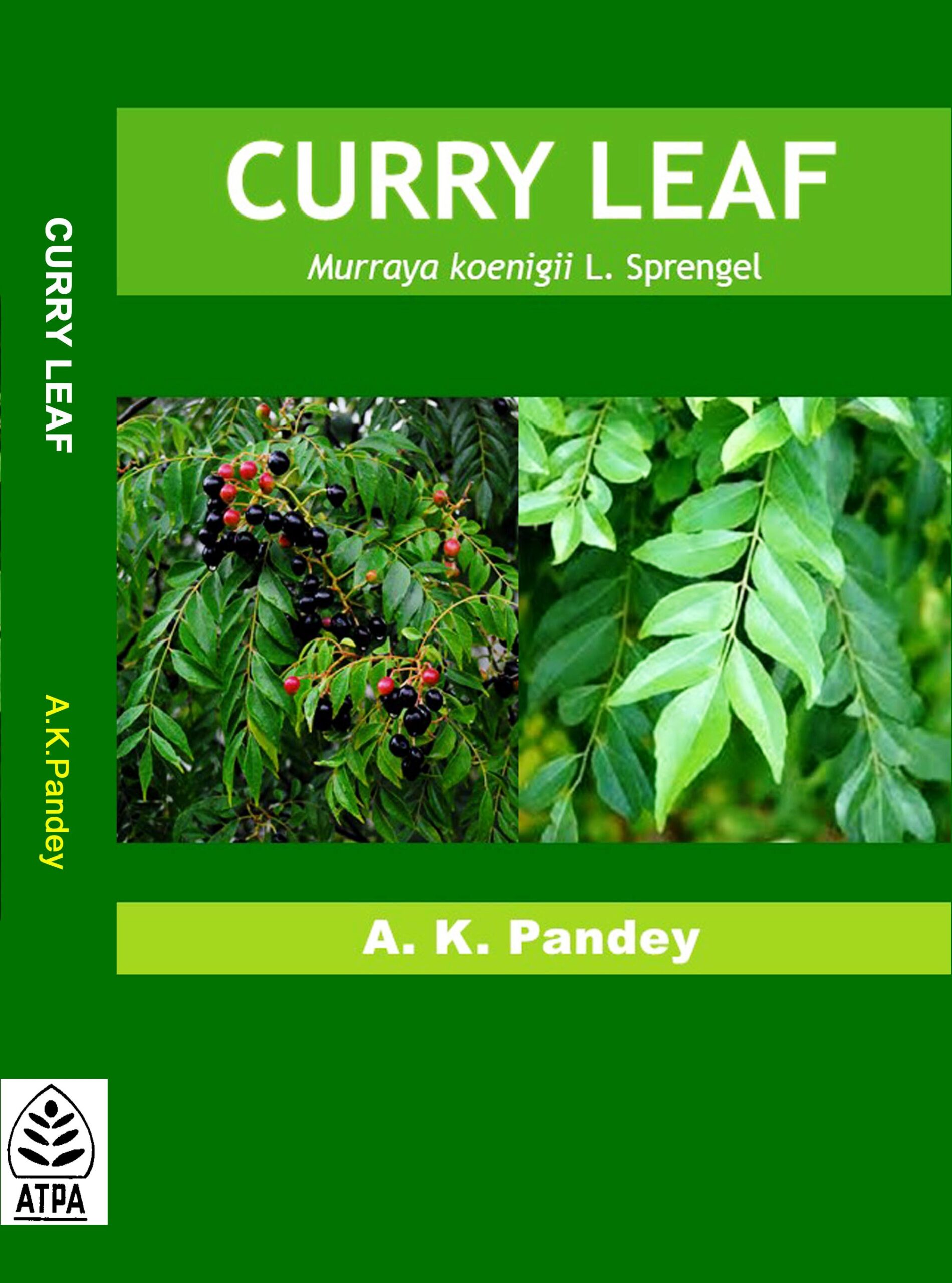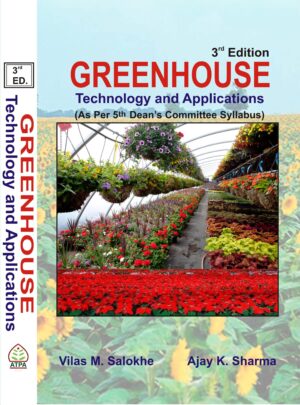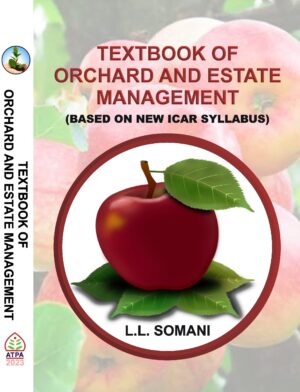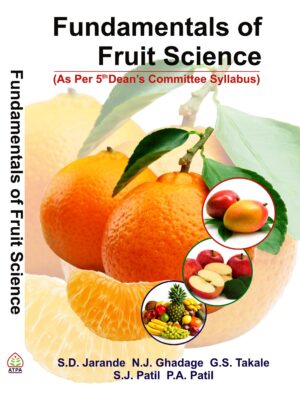CURRY LEAF
₹750.00
AUTHORS: A.K. PANDEY
PUBLISHING YEAR: 2018
ISBN: 9788183214667
© All Rights Reserved
Description
ABOUT THE BOOK
Curry leaf has been the symbol of spice tree in the backyards of South India and parts of Sri Lanka. Its multiple uses in variety of preparations not only allured the people for its spicy taste, flavor and aroma but real facts supposed to be its immense nutrient and health related potential. Plant of curry leaf possesses immense antioxidant properties and is very much beneficial for people who are exposed to menace of cadmium. The presence of methanol in the leaves enable it to have strong antinoicieptive. It also carries analgesic properties and provides instant relieves from the problems such as paw edema and inflammation. Apart from these, it has tremendous capacity to minimize the cause of dementia and Alzheimer which has become a common ailment nowadays in aging people. The extracts of the curry tree help in protecting the pancreatic beta cells and improving the functioning of pancreatic islets that are responsible to produce insulin. Further, it is considered a rich source of polyphenols, which inhibits the proteolytic activity of the cancer cell proteasome, and cause cell death. In recent past, this plant has received a vast attention of researchers engaged in various fields of nutrients and having strong quest to find new molecules. To deal with various issues of this precious plant information has been given in following 5 chapters: 1.Introduction, 2. Botanical Description, 3. Ecology & Agronomy, 4.Chemical& medicinal Properties and 5.Genetic Resources and Improvement.
CONTENTS
| S. No. | Title | Page |
| About the book | 2 | |
| Foreward | 5 | |
| Preface | 6-7 | |
| About the authors | 8-9 | |
| 1 | INTRODUCTION | 13-18 |
| Distribution | 13 | |
| Production and International Trade | 13 | |
| Different forms of uses | 14 | |
| Dried leaves | 15 | |
| Curry leaf powder | 15 | |
| Mutagenic properties of curry leaf powder | 15 | |
| Curry leaf flowers | 16 | |
| Curry leaf stem | 17 | |
| Curry leaf root | 17 | |
| Curry leaf seeds | 18 | |
| 2 | BOTANICAL DESCRIPTION | 19-47 |
| Family Rutaceae | 19 | |
| Floral formula | 21 | |
| Distribution | 21 | |
| Description | 21 | |
| Species under the genusMurraya | 22 | |
| 1.1Murraya paniculata var. ovatifoliolata | 25 | |
| 1.2Murraya paniculata var. zollingeri | 26 | |
| 1.3. Murraya paniculata var. omphalocarpa | 26 | |
| 2.0. Murraya gleniei Thwaites ex Oliv. | 27 | |
| 3.0 Murraya alternans (Kurz) Swing. | 28 | |
| 4.0 Murraya alata Drake, | 29 | |
| 4a. Murraya alata var. hainanensis Swing. | 30 | |
| 5. 0 Murraya koenigii (L.) Spreng. | 31 | |
| 6.0 Murraya microphylla | 33 | |
| 7. 0 Murraya siamensisCraib, | 35 | |
| 8. 0 Murraya euchrestifoliaHayata, | 36 | |
| 9. 0 Murraya crenulata (Turcz.) Oliv. | 37 | |
| Species of Uncertain Relationships | 39 | |
| 10.0 Murraya glabra (Guill.) Swing. | 39 | |
| 11.0 Murraya stenocarpa (Drake) Swing. | 40 | |
| Cytogenetics | 41 | |
| Chemotaxonomy | 42 | |
| Morphoanatomy of Curry Leaf Plant | 43 | |
| Epidermis | 43 | |
| Floral attributes | 44 | |
| Anthesis and Floral biology | 45 | |
| Pollen ovule ratio | 46 | |
| Pollination and fruit set | 46 | |
| Status of polyembryony | 47 | |
| 3 | ECOLOGY AND AGRONOMY | 48-73 |
| Propagation | 49 | |
| By seed | 49 | |
| Nursery | 49 | |
| Vegetative propagation | 49 | |
| By cutting | 49 | |
| By root suckers | 50 | |
| Micro-propagation | 50 | |
| Field Preparation | 51 | |
| Manures and fertilizers | 51 | |
| Planting | 53 | |
| Interculture and Pruning | 53 | |
| Topping | 53 | |
| Weed management | 54 | |
| Broadleaf weeds | 54 | |
| Irrigation | 54 | |
| Flowering and Fruiting Season | 55 | |
| Harvesting and Yield | 55 | |
| Post Harvest Management | 56 | |
| Drying and Dehydration of curry leaf | 56 | |
| Method of Dehydration | 58 | |
| Design and development of herbal dryer | 58 | |
| Plant protection | 63 | |
| Growing curry leaf in container | 72 | |
| Tips for raising curry leaf plant in containers | 73 | |
| 4 | CHEMICAL AND MEDICINAL PROPERTIES | 74-110 |
| Nutritive value of curry leaf | 74- | |
| Lipid composition of curry leaf seeds | 76 | |
| Curry leaf oil | 77 | |
| Characteristic Odour in the essential oils of curry leaf | 78 | |
| chemicals identified in curry leaf oil | 79 | |
| Aliphatic compound | 79 | |
| Terpenoids Monoterpenes | 80 | |
| Oxygenated monoterpenes | 85 | |
| Oxygenated sesquiterpenes | 97 | |
| Miscellaneous compounds | 102 | |
| Phytochemistry | 102 | |
| Minor compounds isolated from M. koenigii | 104 | |
| Antimicrobial Property | 106 | |
| Remedy in Bronchial disorder | 106 | |
| Anti constipation and anti diarrheal property | 106 | |
| Hypoglycemic Property | 107 | |
| Useful in Hypercholesterolemia and Atherosclerosis | 107 | |
| Antioxidant Properties | 107 | |
| Remedy in of Alzheimer’s disease and dementia | 108 | |
| Useful in Orofacial Dyskinesia | 109 | |
| Reducing Obesity | 110 | |
| 5 | GENETIC RESOURCES AND IMPROVEMENT | 111-118 |
| Genetic Resources and Improvement | 111 | |
| Varieties | 113 | |
| Micropropagation | 114 | |
| Biotechnology | 118 | |
| 6 | REFERENCES | 119-133 |
| Subject index | 134-136 |
ABOUT THE AUTHOR
Dr. A.K. Pandey is Dean at College of Horticulture and Forestry, Central Agricultural University, Pasighat, Arunachal Pradesh since September 20th, 2012 to till date. Prior to join this post, Dr. Pandey worked as Principal Scientist at Indian Institute of Vegetable Research, Varanasi. He is ARS Scientist of 1985 batch and obtained his Master and Ph.D. degree in Horticulture from C.S. Azad University of Agril. & and Tech., Kanpur. Dr. Pandey participated in the Ist International Post Graduate Course on Protected Agriculture in Arid and Semi-arid Region at Hebrew University, Jerusalem, Israel. He has published 75 research papers in journals of national and international repute, 93 Conference papers, 26 Book Chapters, 15 Technical Bulletins and 08 Extension Bulletins and more than 100 popular articles. Dr. Pandey’s contribution on underutilized vegetables is considered as one of the most notable achievements. He has attended more than 150 National/Inter-nation conferences/ seminars/ symposia / workshops/ group meetings and has authored 11books. Considering his excellent academic contribution, Scientific and Applied Research Centre, Meerut bestowed him “Outstanding Authorship in Science and Technology Award” 2010. Dr. Pandey has been conferred with several awards and honours for his distinguished academic contribution. Hon’ble President, Republic of India has conferred him with prestigious Rajiv Gandhi Gyan-VigyanPurskar in 2012. Defence Research and Development Organization (DRDO), Ministry of Defence, Govt. of India and Ministry Home Affairs Govt. of India bestowed five times “Rajbhasa Puraskar” for his excellent writing of different books on vegetables. Besides these, he is recipient of “R.C.Patro Memorial Award 2014” and “Govind Chandra Sahu Award 2016”. Recently, Biological Sciences and Rural Development, Allahabad has conferred him “Life Time Achievement Award” for his significant contribution in field of Vegetable Science.
Additional information
| AUTHOR/AUTHORS | A.K. PANDEY |
|---|---|
| PAGES | 136 |
| BINDING | Hard Back |
| PUBLICATION YEAR | 2018 |





